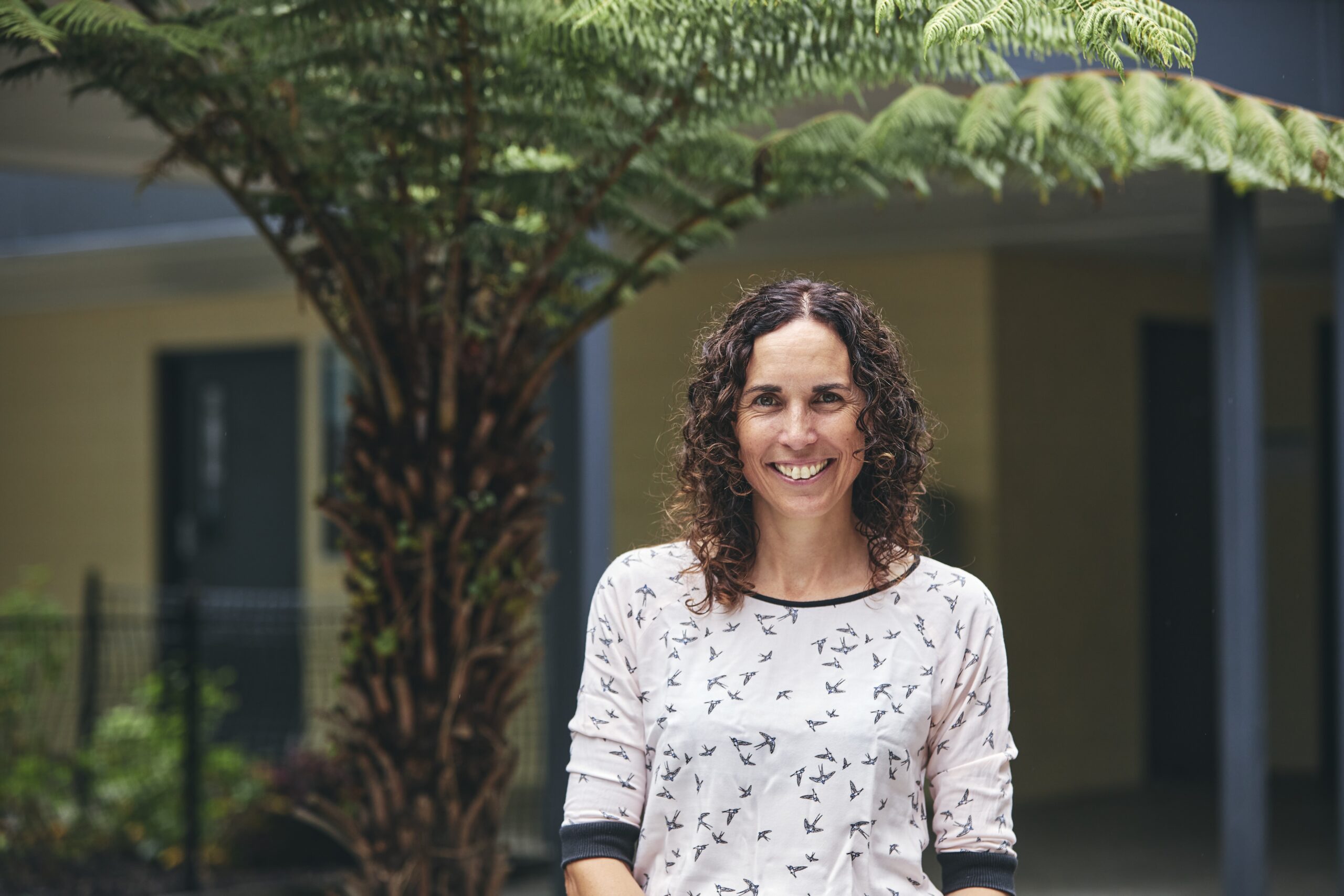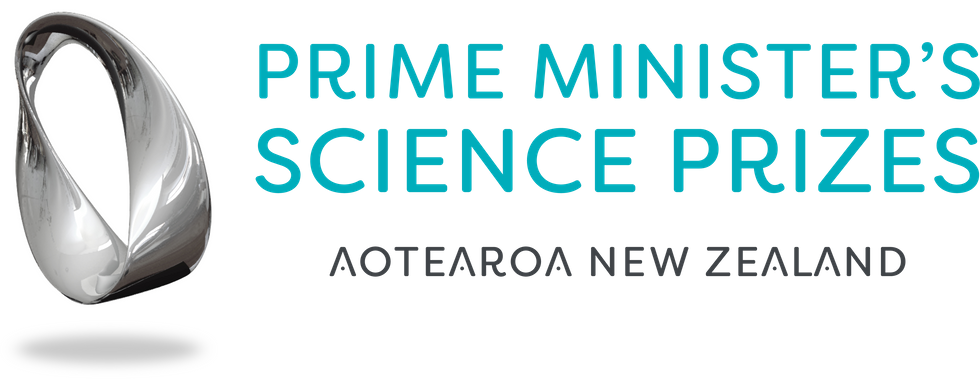Winning science teacher prioritises making all her students feel valued and engaged

MEDIA RELEASE: 2023 TE PUIAKI KAIWHAKAAKO PŪTAIAO SCIENCE TEACHER PRIZE
Making sure each student feels valued, and engaging their natural curiosity so they want to learn the science behind their observations and interests, are the teaching philosophies that guide this year’s winner of the Prime Minister’s Science Teacher Prize.
Madeleine Collins teaches chemistry and science at Green Bay High School in Auckland, and is also Associate Head of the science faculty.
Over almost a quarter-century in teaching and education, Madeleine has held many roles including teaching in both primary and secondary schools, and being a park ranger and a professional development facilitator. “I’ve gained a lot of experience of what science can look like at every level of our curriculum,” she says.
Valuing each student
“One of the big things in my teaching is to make sure that every student feels valued, that they know I truly care about them. Obviously, when I see 120 students a day come through my door, that can be tricky. But every single human is unique and special and has so much to offer. So I think it’s really important that I reflect that in every interaction with my students as best I can.”
Part of that is finding out what really motivates them.
One recent example involved a group of her students who were very keen on going to the gym and comparing their muscle gains but weren’t so much into chemistry! Madeleine got them to take their protein powders and creatine supplements out of their bags. Once she had helped them to connect the ingredients listed on the back of these products with what they were studying in class, “they were hooked”, she said. “I don’t think I could have hooked them a different way, but they were into it. They were excited to understand what all the things on the back of their bottles meant.” She was able to lead them through the necessary learning and internal assessment based on what was in those powders and supplements.
5E instructional model
This is an example of Madeleine applying her favourite pedagogical strategy, called the 5E instructional model: Engage, Explore, Explain, Elaborate, Evaluate.
“The students work through these stages of the Es. Evaluate can come in at any time,” she explains.
“Engage gets our students hooked. They want to know more. Then they get an opportunity to explore something in detail. And only once they’ve really explored it and been captivated by it, then we try and explain it from a science point of view. So that means our students want to know more. They want to know why the crystals burnt that colour or why the lichens outside have lots of heavy metals in them. They want to find out the reason for what they have just observed or noticed in class. And then they can even take that further to elaborate and evaluate their learning and figure out their next steps.”
Madeleine says this approach gives her students a sense of agency, and that the approach works just as well in curriculum-heavy senior classes as at earlier levels.
“I believe that science is enchanting and exciting and full of joy and should provoke curiosity. It’s all about the world around us.”
Mātauranga Māori
Incorporating Te Ao Māori values and mātauranga into her lessons is really important to Madeleine.
“In Aotearoa of course we have multiple worldviews and te ao Māori is an essential part of our country and teaching through that lens of mātauranga Māori is imperative,” she says.
“It’s not just Western science that informs our knowledge of how the world works. The knowledge we build can come from multiple lenses and will lead us to a greater understanding of the natural world, which is essentially what science is.”
Impact on the school
Green Bay Principal Fiona Barker says she is really proud of the school’s science department. She says there is a great team spirit in the department and the teachers support each other to engage their students.
“Madeleine is a great part of the team. She’s someone who has got both passion for their subject, for science, and passion for our young people.
“She brings that magic every day, and our students get to benefit, and so do we all. One of the ways she does this is by collaborating with others to create real-life science partnerships.”
Fiona says that last year, some students went down to Dunedin to do some research around lichen. There, they worked with scientists from the University of Otago and geologists from GNS Science Te Pū Ao.
“It’s about creating opportunities where life and learning happens for our students in a really exciting context. That’s an amazing thing that she brings.”
Outside the school
In addition to her responsibilities at Green Bay High School, Madeleine has been a core facilitator at the Sir Paul Callaghan Science Academy at a national level for the past 12 years. It’s a 4-day course that teachers of Years 0 to 10 can attend, to learn about implementing a school-wide hands-on science programme.
She has also been part of a team advising the Ministry of Education on changes to the science curriculum.
Madeleine’s message for her fellow science teachers is to be braver in adopting a hands-on learning approach.
“Often in science teaching, especially secondary science teaching, we’re stifled by requirements for assessment and for curriculum, and we forget to connect with the real world, the real world of science and nature outside – how everything works. Yet, when we actually step away from the classroom and that rigid content day after day, that’s when the real learning happens.”
“It takes a lot of bravery to do that. It probably took me the best part of two decades of teaching to feel comfortable to do that.”
“It would be great if we could all be brave as science teachers and step outside that content rigour and really explore that world around us.”
The prize
The Science Teacher Prize is valued at $150,000. Madeleine is “humbled and excited” to win the prize, emphasising that her success is built on support from many people: “Ehara taku toa I te toa takitahi, engari he toa takitini.”
Madeleine is excited about the opportunities that this prize will give the students at Green Bay High School. “They are fabulous students from a world of backgrounds who are really passionate learners and amazing individuals who don’t get, necessarily, a whole heap of opportunities. So my plans are brewing for things I can do for them.”
In awarding the prize, the experts on the selection panel noted her enthusiasm, energy, and ability to tailor her teaching for each student. “Student agency is a hallmark of her teaching. She clearly reads her learners and differentiates her teaching to meet them where they are.”
